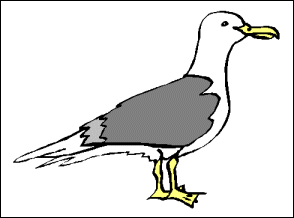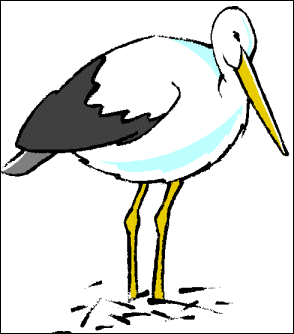Some birds, including sparrows and herring gulls, lay their eggs so that the last one to come out is a shade or two lighter than the others. You might suppose that laying eggs requires some effort and that the colour of the last egg is a sign of an exhausted mother. But recent research by a British mathematician suggests that the pallid egg might act to warn other mothers off from trying to lay more eggs in the nest - "Oi, this one's already full!" and that this practice might be of evolutionary advantage.

Many bird species exhibit "brood parasitism" where females who perhaps haven't found a nest site of their own will lay eggs in nests of others of their own species. Too many extra eggs in the nest may put the other eggs in danger. So there is a conflict of interest between the parties. Mark Broom of the University of Sussex, Brighton, and colleagues have modelled this behaviour using Mathematical Game Theory, which looks at the best choice of strategy in all situations involving competition or conflict of interest.
The results reveal that honest layers and parasites that pay attention to egg colour will hatch more young than cheats who trick parasites by laying the pale egg first, or parasites that ignore pale eggs altogether given two conditions. These are that pale eggs have a greater risk of failing to hatch than normal eggs and that it is more costly to the mother to lay them early than late. These conditions are possible since the pale eggs may be poorly camouflaged and will have a different temperature during incubation. And therefore if they replace early laid eggs that usually have a greater chance of survival fewer eggs in total are likely to hatch successfully.

The more costly it is to produce a pale egg, and the scarcer the parasites, the less effort it is accept a foreign egg. If the cost is low then more and more birds will start to cheat by laying pale eggs early. If nearly all the birds cheat then there isn't any point in responding to the signal and no advantage to laying pale eggs.
Broom now hopes that some field work be carried out to determine whether the hypothesis suggested by the mathematics is true - do parasites in fact avoid nests with pale eggs?